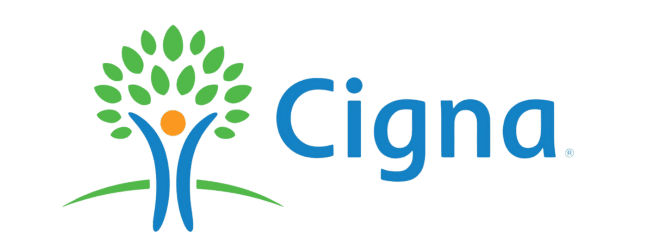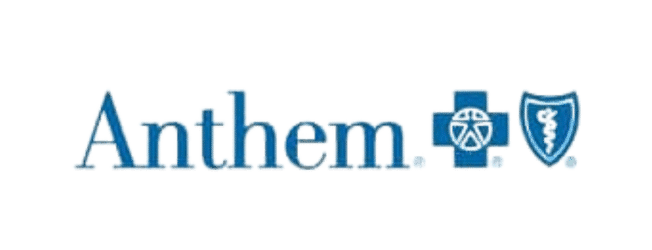Tennessee Behavioral Health
The 12-Step Program in Nashville: Embracing Recovery


The 12-Step Program in Nashville is renowned for its effectiveness in guiding individuals toward overcoming addiction and embracing long-term sobriety. At Tennessee Behavioral Health, we integrate this 12-step recovery model into our comprehensive approach to addiction treatment, offering a supportive environment where individuals can find their path to recovery and build a life of recovery.
Our 12-Step Program is grounded in the principles of personal responsibility, spiritual growth, and emotional growth. We follow traditional 12-step programs developed in the 1930s for alcoholism recovery, while also incorporating evidence-based therapies and behavioral therapies such as Cognitive Behavioral Therapy (CBT) and Motivational Enhancement Therapy. This balance between therapy and spiritual principles supports both the spiritual foundation and psychological components of recovery. We understand that addiction to alcohol and drug addiction involves complex issues that affect every part of daily life. That’s why we also provide dual diagnosis support for those facing mental health disorders and behavioral issues, ensuring that treatment options reflect a complete picture of care.
Our clinical team includes addiction counselors, therapists, and medical detox staff who specialize in substance abuse treatment and the 12-Step model. They guide you through intense 12-step work, leading group therapy sessions, one-on-one therapy sessions, and discussions around the concept of fellowship, personal recovery plans, and the admission of wrongs.
The 12-Step Program is a structured, spiritual-based approach to recovery that supports individuals in their journey toward recovery from addiction. Widely used in self-help groups like Alcoholics Anonymous (AA) and Narcotics Anonymous (NA), this model provides a framework for addiction recovery grounded in spiritual components, personal growth, and practical strategies.
This step begins the recovery process by acknowledging the lack of control over addiction. It opens the door to authentic healing and sets the stage for meaningful change through recovery from addiction.
This step introduces the idea of seeking help beyond oneself. For many, this includes a spiritual foundation, but it can also involve peer support networks or secular approaches such as SMART Recovery or LifeRing Secular Recovery.
Step three highlights the importance of surrender, trust, and letting go. Clients define their own higher power, which may reflect their spiritual or non-12-step rehab beliefs. This flexibility makes the step accessible to people of all backgrounds, including those who prefer non-AA therapy or Secular Organizations for Sobriety.
Step 4 marks a major turning point in the recovery process, requiring individuals to reflect deeply on their personal experiences, behaviors, and core issues. By identifying character defects, past resentments, and wrongdoings, clients begin to understand the root of their addictive behaviors. Our clinicians support this introspective work through psychological therapy, dialectical behavior therapy, and cognitive-behavioral therapy techniques, which help clients process past trauma and make healthier choices moving forward. This step is a key component in many paths to recovery, setting the stage for meaningful growth.
This step brings honesty and accountability into the recovery journey. Clients share their moral inventory with a sponsor, therapist, or trusted support person. At Tennessee Behavioral Health, we foster peer support networks and the power of peer support through structured group and one-on-one time. This step aligns with our broader recovery approach, which includes family systems therapy, evidence-based methods, and spiritual or secular approaches based on each client’s belief system. The goal is to build a strong foundation in recovery and promote personal growth.
Step 6 reflects a readiness for transformation. Clients acknowledge their defects and prepare to release them, often with the help of a higher power, though this may also include support from SMART Recovery, Refuge Recovery, or non-12-step rehab programs for those who prefer non-12-step recovery treatment. We integrate evidence-based practices and experiential therapy to support this phase, offering a chance at recovery that accommodates all belief systems. This readiness often grows stronger through involvement in meditation practices, mindfulness practices, and open dialogue about spiritual components or alternative paths.
Step 7 is about humility and faith. Clients learn to ask their higher power for help in letting go of harmful traits. This step encourages accountability and the continued development of life skills and practical skills, which are essential in building sober lives and navigating everyday life. At our treatment center in Middle Tennessee, we combine this spiritual work with evidence-based treatment methods, such as cognitive-behavioral therapy (CBT) principles and motivation interviewing, ensuring clients receive care rooted in both belief and science.
Step 8 invites individuals to take personal responsibility for past actions that caused harm. This list serves as the foundation for future reconciliation and is a key program component in developing life skills treatment concepts like accountability and emotional maturity. At Tennessee Behavioral Health, clients engage in this process with guidance from our certified staff and therapists who understand the impact of addictive behaviors on family issues, relationships, and community life. This step prepares individuals for a sincere and meaningful journey to healing
Step 9 moves from preparation to action. Clients, with support from our personalized care team, begin making direct amends when appropriate. This is an important moment in the experience of recovery, reinforcing the values of honesty, respect, and compassion. Our program supports this step through structured therapeutic guidance and evidence-based strategies that reduce harm and rebuild trust—foundational elements for long-term recovery and sustained recovery.
Step 10 emphasizes consistency in self-awareness. This ongoing reflection is essential for preventing relapse and improving recovery outcomes. Our staff promotes this step through regular therapy check-ins and journal-based self-monitoring as part of our inpatient care options and outpatient support. This aligns with the larger approach to addiction recovery, where maintaining progress is just as important as beginning it.
This step strengthens the spiritual side of recovery. Clients are encouraged to explore meditation practices, prayer, or other mindful rituals to stay connected with their values and goals. Whether participating in traditional spiritual work or a 12-Step AA Alternative, individuals can deepen their awareness and decision-making abilities. Our approach to treatment respects both faith-based and non-12-step recovery programs like LifeRing Secular Recovery and Secular Organizations for Sobriety or SMART recovery participants, supporting clients on all recovery paths.
In Step 12, clients shift from healing to helping. Many become sponsors, serve as peer mentors, or support newcomers through programming for substance abuse. This step promotes emphasis on peer support, a core part of the recovery experience. Clients share their growth and success, contributing to a culture of compassion and connection. It’s often the beginning of permanent recovery, where individuals not only live sober lives but help others do the same.
The 12-step Program places a strong emphasis on community and fellowship. Many individuals in recovery attend regular meetings where they can share their experiences, gain support from others, and work through the steps with the guidance of a sponsor.
Tennessee Behavioral Health offers comprehensive, medically supervised Drug and Alcohol Addiction Treatment for individuals struggling with prescription drug addiction, alcohol consumption, and other substance use disorders. Our treatment center in Middle Tennessee provides a safe, supportive environment with 24/7 certified staff, medical services, and evidence-based treatment methods designed to support long-term recovery.
We guide individuals through every stage of the recovery process—from alcohol detox center services and withdrawal from substance abuse to inpatient care options and outpatient programming—ensuring each patient receives the appropriate level of care supplied. With personalized care plans that include cognitive-behavioral therapy techniques, motivational interviewing, and support for mental health conditions, our team helps clients build a strong foundation in recovery and improve their quality of life.






If you’re struggling with addiction and seeking a structured and supportive path to sobriety, the 12-Step Program can be a valuable tool on your journey to recovery. We’re here to support you every step of the way.
Contact us today to learn more about the 12-step Program and how it can be integrated into your addiction treatment plan. Tennessee Behavioral Health is dedicated to helping you achieve lasting sobriety and wellness. Together, we can help you take the first steps toward a healthier, drug-free life.











© 2025 – Tennessee Behavioral Health – All Rights Reserved.